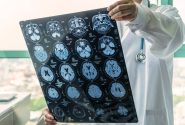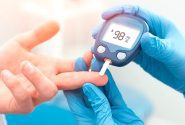(HealthDay News) — (Tasrir) — Researchers analyzed brain scans to identify six different biological types of depression, based on differences in patterns of brain activity, according to results published June 17 in the journal Nature Medicine.
These differences allowed researchers to single out the potentially best treatments for three of the depression types, results show.
“To our knowledge, this is the first time we’ve been able to demonstrate that depression can be explained by different disruptions to the functioning of the brain,” said senior researcher Leanne Williams, director of Stanford Medicine’s Center for Precision Mental Health and Wellness.
“In essence, it’s a demonstration of a personalized medicine approach for mental health based on objective measures of brain function,” Williams said in a Stanford news release.
If these findings hold, people diagnosed with depression could one day undergo a brain scan to reveal the treatment that would best work for them.
About 30% of people with depression don’t respond at all to either medication or talk therapy, and as many as two-thirds find that treatment isn’t able to fully quell their depression.
That’s in part because up to now there’s been no good way to know which antidepressant or type of therapy would most benefit any particular patient, researchers said.
Drugs are prescribed through a trial-and-error method, so it can take months or years to land on one that works. In the meantime, the grinding process can make a person’s depression even worse.
“The goal of our work is figuring out how we can get it right the first time,” Williams said. “It’s very frustrating to be in the field of depression and not have a better alternative to this one-size-fits-all approach.”
For the study, researchers analyzed brain scans of 801 people diagnosed with depression or anxiety. The people were scanned at rest, and again when they were engaged in different tasks intended to stir up thoughts and emotions.
Researchers narrowed in on regions of the brain known to play a role in depression. Artificial intelligence helped them sort the activity in these regions into six distinct types of depression.
In a further trial, 250 participants were randomly assigned to either talk therapy or one of three commonly used antidepressants. The results provided some indication that some therapies work better than others on certain types:
One type, characterized by overactivity in the cognitive regions of the brain, experienced the best response to the antidepressant venlafaxine (Effexor).
Another type, in which brains at rest had more activity between three regions associated with depression and problem-solving, responded better to talk therapy.
A third type, which involved lower levels of activity at rest in a brain region tied to attention, was less likely to respond to talk therapy.
The distinct biotypes of depression also correlated with differences in symptoms between participants, researchers found.
For example, those with overactive cognitive regions of the brain were more likely to be unable to feel pleasure, and also performed worse on tasks involving organization.
Researchers plan to expand the study to include more people, and to test more medicines and treatments in all six of the biotypes.
“To really move the field toward precision psychiatry, we need to identify treatments most likely to be effective for patients and get them on that treatment as soon as possible,” said researcher Dr. Jun Ma, director of the Center for Health Behavior Research at the University of Illinois Chicago.
“Having information on their brain function, in particular the validated signatures we evaluated in this study, would help inform more precise treatment and prescriptions for individuals,” Ma added.

















